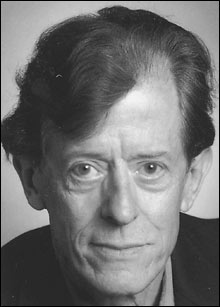
John Byrne Cooke |
In his new book, Reporting the War: Freedom of the Press from the American Revolution to the War on Terrorism (Palgrave MacMillan, 288 pages, $24.95), author John Byrne Cooke tracks press influence on public opinion from the rabble rousing of the Revolutionary War–era Massachusetts Spy to anti-Bush rants published in this paper. The book offers cause for both optimism and pessimism. We spoke with Cooke by phone about one of its recurring (and topical) themes: the threat of censorship.Your book is a reminder that the press’s periodic failure as a watchdog is nothing new. American newspapers didn’t exactly cover themselves with glory before and during the Spanish-American war, for example.
The Hearst papers were pretty gung ho — it’s remarkable to see front pages plastered with one story after another about “Spanish perfidy” and “Spanish cruelty.” The New York Evening Post was much more cautious, but the Hearst papers at that time were like a trumpet. Hearst and Pulitzer were locked in this competition for dominating New York. And the Hearst papers — Pulitzer to a slightly lesser degree — really took advantage. They were really critical of [President William] McKinley, saying that he has no guts, that he’s disgraced us.
Hearst emerged as a free-press hero when Woodrow Wilson threatened censorship in World War I.
The first World War is a really interesting case. You have a lot of prominent voices in the press arguing very strongly against the Espionage Act when it was first proposed, because it did have a provision that basically gave the president carte blanche — if the law was passed — to censor the press. There was no provision at all for further congressional or judicial oversight. The press worked pretty hard against this, with Hearst in the vanguard, and that provision was struck out of the bill. We think of Hearst as a right-wing figure . . . but he began life as a radical Democrat — too radical, almost, for the Democratic Party. He supported labor against capital. He became a power unto himself as a press baron, but his politics were never really as simple as we tend to remember.
A year later, however, what a lot of people call the Sedition Act went through. It was simply an amendment to the Espionage Act — it did have language referring to the press, but it was understood that the purpose of passing it was not to go after the press. And the press was silent. And once the law was enacted, they remained pretty silent about people being rounded up for their opinions. It was really, in a way, the press’s most extraordinary lapse, at least until the recent past.
Another unlikely hero you mention is Benjamin Wood, a slavery supporter who defended press freedom during the Civil War.
Wood was the editor of the New York Daily News. His brother Fernando was mayor of New York and suggested the city should secede from the Union for economic reasons. They’ve been pretty much excoriated by history. But day after day, Benjamin Wood was writing these highly articulate and sometimes impassioned editorials about fundamental constitutional rights. He didn’t sound like he was just trying to protect himself, because he was talking about people being imprisoned at Fort Lafayette, about people being thrown in jail for expressing their opinions.